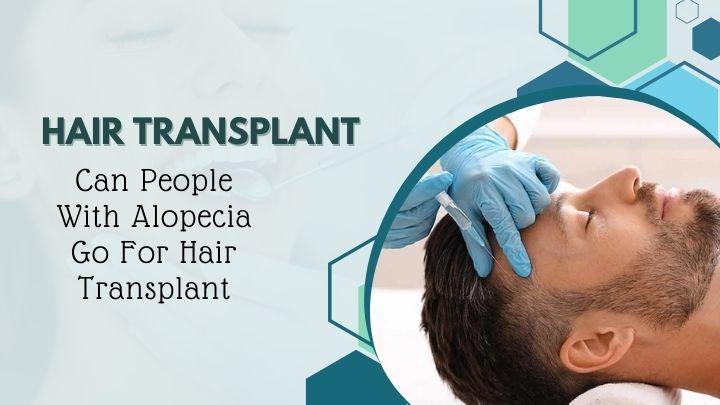Can People With Alopecia Go For Hair Transplant

Alopecia is a medical condition of complete or partial hair loss. Alopecia is a self-esteem-damaging situation, in which it makes it difficult for individuals to regain the lost hair. Fortunately, hair transplant is there to manage the situation and one affected by alopecia can also get hairy scalp back using hair transplant.
Dadu Medical Centre is a renowned clinic for the best hair transplant in Delhi. The clinic shared its experience of managing the alopecia condition using hair transplant. Based on that, this blog will explore the possibilities and considerations surrounding hair transplantation for people with alopecia.
Alopecia and Hair Transplantation
Alopecia refers to a variety of hair loss diseases, each with its own particular traits. The kind of alopecia, the degree of hair loss, and the quality of the patient’s hair follicles are some of the variables that determine the success and acceptability of hair transplantation as a treatment option for alopecia.
Types of Alopecia and Hair Transplantation:
-
Androgenetic Alopecia
Androgenetic alopecia is the most common type of baldness. The primary cause of this androgenetic alopecia are genetics and hormonal imbalance. Hair transplantation is a commonly sought-after treatment for androgenetic alopecia. In this treatment, healthy hair follicles are harvested from the back or sides of the scalp and transplanted to the areas experiencing thinning or baldness. This approach can provide significant improvement in hair density and restore a more natural hairline.
-
Alopecia Areata
People with alopecia areata, a disorder characterised by patchy hair loss brought on by an autoimmune reaction, may not be candidates for hair transplantation. The success of hair transplantation depends on the availability of good donor sites, which may be scarce or nonexistent in those with severe alopecia areata. Other forms of treatment, such as topical drugs or injections, may be more suitable in such circumstances.
- Alopecia Totalis and Universalis
For those who have alopecia totalis (full loss of scalp hair) or alopecia universalis (complete loss of hair on the scalp and body), hair transplantation is typically not advised. In certain situations, transplantation is not possible due to a lack of healthy donor hair follicles. For easing the emotional effects of total hair loss, alternative solutions like wigs, scalp micropigmentation, counselling, and support groups may be helpful.
Considerations for Hair Transplantation
-
Evaluation by a Hair Transplant Specialist
It’s critical for people with alopecia who are thinking about getting a hair transplant to speak with a hair expert who has experience with hair restoration or a licenced Hair Transplant specialist. They are able to decide the best course of action for therapy by assessing the kind and severity of hair loss, the condition of hair follicles, and other factors.
-
Persistent Hair Loss
It’s critical for alopecia patients to make sure their hair loss is stable before receiving a hair transplant. To get the best outcomes from hair transplant surgery, which includes moving hair follicles, the donor location and the recipient area must be stable.
- Art
- Causes
- Crafts
- Dance
- Drinks
- Film
- Fitness
- Food
- الألعاب
- Gardening
- Health
- الرئيسية
- Literature
- Music
- Networking
- أخرى
- Party
- Religion
- Shopping
- Sports
- Theater
- Wellness
- IT, Cloud, Software and Technology


